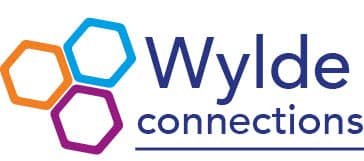Navigating ESG reporting and taxation – charting your sustainability journey
The drive to meet our Net Zero 2050 commitment is shaping the landscape of ESG reporting. As the UK turns to business to play its part in decarbonisation, legislators are busy laying out new ESG requirements. From declaring emissions to paying tax on plastics, we are seeing a major scale up in sustainability requirements. Wylde’s latest eBook LINK explores the latest regulatory requirements and raises awareness of what is on the horizon. There has never been a better time to seek support in embedding sustainability in your business and reaping the benefits of committing to the triple bottom line of people, profit and planet.
Measuring and reporting environmental performance is becoming a key part of business operations. For some this reporting is compulsory but an increasing number of companies are voluntarily collecting and reporting on data. This is both in response to pressure from stakeholders and in recognition of the competitive advantage sustainable practice can secure.
Our eBook highlights some of the key reporting requirements affecting business today. Firstly, Streamlined Energy and Carbon Reporting (SECR) requires qualifying businesses to disclose their energy use, carbon footprint, and greenhouse gas (GHG) emissions as part of their annual financial reporting.
Many of those businesses will also qualify for the Financial Conduct Authority Task Force on Climate–Related Financial Disclosures (TCFD). The framework covers the four key areas ofstrategy, governance, risk management, metric and targets. From April 2022 it became mandatory for Limited Liability Partnerships (LLP’s) and large companies to disclose climate-related financial information in their annual reports. The idea is to give businesses greater insight into how climate change affects their business strategies and encourage them to reduce their environmental impact.
Larger businesses are also obliged to conduct energy audits for the Energy Saving Opportunity Scheme (ESOS). In addition, some UK businesses may also find themselves affected by the EU’s Corporate Sustainability Reporting Directive (CSRD) which requires larger businesses and listed SMEs to extend their reporting to cover wider “sustainability matters”. Together with Net Zero-related regulation, business must also balance its obligations to embrace diversity and inclusion.
Up to now, SMEs have avoided reporting legislation, but the consensus is that it is only a matter time before they face the same requirements. The government has for instance announced its intention to extend the scope through new Sustainability Disclosure Requirements (SDR), whilst TNFD (Taskforce for Nature-related Financial Disclosure) isresponding to biodiversity loss by presenting a new framework for nature–related disclosures.Businesses large and small need to keep their finger on the pulse.
One of our roles as a trusted sustainability partner is to keep clients up to speed withreporting and taxation requirements. This is not only to ensure compliance but to help them gain much greater visibility into their operations. Reporting gives invaluable insight and the ability to track and measure greenhouse gas (GHG) emissions helps businesses identify interventions that will drive efficiencies and build resilience.
Taking a deep dive into your data is an integral part of developing a robust sustainability strategy. The benefits are wide ranging, be it identifying opportunities to reduce energy consumption and minimising waste, or highlighting how you might support the circular economy by keeping resources in the value chain.
Wylde’s expert team of consultants supports clients every step of their journey. Talk to usabout how we can help future proof your operation and put sustainable practice at the heart of your growth strategy.
Click here to download the eBook.
Book a Discovery Call and talk to Wylde today about transforming your business through best-in-class sustainability consultancy.

